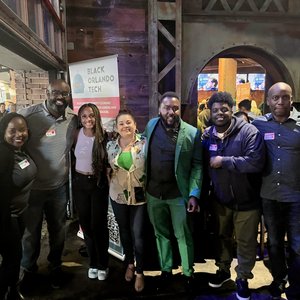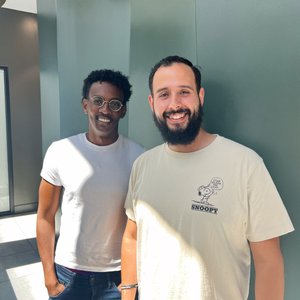
U.S. jobs in artificial intelligence are clustered around a short list of "superstar" cities and "early adopter" centers, according to a new report from the nonprofit Brookings Institution.
So far, none of those superstars is in Florida, though metro Orlando is seeing growth in AI jobs — and growing momentum in the industry, experts say.
AI education leading the way
Luis Garcia said he thinks more of those jobs are coming. The co-founder of Orlando-based fractional c-suite services company Collectiva and former vice president of emerging technologies at Full Sale University indicated Orlando companies don't tend to be early adopters.
"The boom of generative AI is not new for those large markets that have been developing those technologies for years, but it is new for our market, which is more likely to build on existing technologies," he said.
Still, Garcia is seeing more AI-based clients come his way, and he also pointed toward a buildup of AI-centered education programs in the region as a sign the jobs are soon to follow: "When I was at Full Sail, we saw the AI trend coming and opened a concentration in AI for the computer science program."
CEO Rose LeJiste of RL Engineering and Tech Solutions in Altamonte Springs believes exposure to AI education needs to begin early. She has seen one high school program in the region that shines as an example — the artificial intelligence, programming and coding degree path at NeoCity Academy, a public magnet school in Osceola County.
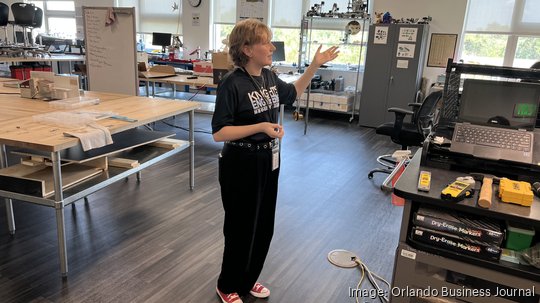
"They're really on the right track. We don't have that in Orange County," she said. "But think about the timeline. They get four years of high school and then another four years of college, so it's eight years before they are ready for the workforce. What they're doing is great, but we also need affordable fast-track certification programs."
The existing programs of this kind offered at local colleges are expensive, as much as $15,000 for six weeks, LeJiste said, and the vetting process is weak: "People sign up for these programs without knowing whether it is a good fit for them and end up with a certification they won't use. Another layer needs to be added to make sure the field is a match for the person."
The other side of it, she said, is that there need to be local jobs available for those who have gotten the training. With the nation's superstar cities stocked with plenty of AI job openings, it can spark a "brain drain" in other regions as workers relocate for better opportunities.
Local companies using AI
LeJiste has matriculated AI into her company's services. "We offer data analytics, data science, business optimization and adjacent services that rely on machine learning. We decided to make changes based on new technologies because the core of what we do is relevant to AI."
But not every company is ready for that, she said.
"I'll see companies doing one-off AI projects, but not the total transformation that comes with truly incorporating the new tech into their business foundation. They might not clearly understand the benefits or have the resources to integrate it."
Solodev — an Orlando company that provides cloud and metaverse technologies for its clients — has been working with Amazon Web Services on AI and machine learning initiatives since 2018. An early adopter, the firm has gone so far as to present its AI-informed product innovations at Amazon headquarters in Seattle, CEO Matt Garrepy said.
"A few weeks ago, I presented an AI overview at a conference in San Francisco, providing an overview of emerging generative AI in content management and digital experience platforms," he said.
Kismet Technologies President Shari Costantini has found that AI is instrumental in her company's marketing efforts and the technical parts of her business.
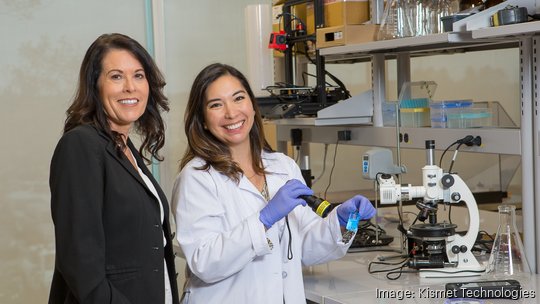
Kismet, base in Orlando, produces a disinfectant product used in coatings and films that provides long-term protection against severe disease-causing germs.
"AI is a great aggregator of data," she said.
Costantini said her team is targeting multiple market verticals for the use of its residual antimicrobial. AI allows them to quickly gather market-specific data regarding their challenges with preventable infections, contamination by bacteria, viruses and fungi in a variety of verticals with clean rooms. On the technical side, they have been able to pull data for product development, saving the team many hours of research.
Anecdotal stories of AI adoption in the region show there is some momentum, but according to Orlando tech unicorn Stax Payments co-founder Jacques Fu, there's a lot more to be done to make Central Florida one of the nation's AI superstars.
Fu, now CEO of Senseily, an online course-hosting platform, said other metro areas such as San Francisco have seven times more tech companies than we have headquartered in our region.
Top metros for AI jobs
San Francisco and San Jose, California, are home to about four times as many artificial intelligence companies and job postings as the next tier of 13 early adopter metro areas, the Brookings report said. Altogether, those 15 metro areas (including New York, Boston, Seattle, Austin and Raleigh, North Carolina), comprise two-thirds of the country's "AI assets and capabilities."
"As an innovation matter, the nation’s hyper-concentrated tech geography may be narrowing the range of possible tech advancements and creating harmful imbalances among firms, local ecosystems, and the resources they command," the think tank reported.
Job postings in generative AI, which uses prompts to create unique content such as text or images (think ChatGPT) is even more concentrated. According to the report, nearly half of all generative AI job postings uploaded over the past year were in just six metro areas: San Francisco, San Jose, New York, Los Angeles, Boston and Seattle.
"If generative AI is to boost prosperity in more places around the country, it will likely require a degree of intentional investment — most notably, from the federal government — in new regions," Brookings reported.
"The report that there are more AI tech jobs elsewhere isn't as concerning as the larger picture that we need more tech investment here," Fu noted. "That said, we have an opportunity, concentration-wise, to actually be a leader in AI."
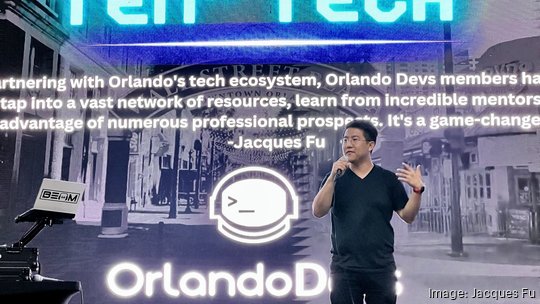
Fu, though, listed regional advantages for Metro Orlando.
"We are gaming- and simulation-heavy, both of which leverage AI. We have a cluster of self-driving vehicle tech companies, like Luminar, where AI is a key component. Plus, there are several automated public transportation initiatives being piloted in Lake Nona and Creative Village."
As such, it is worth noting that the Brookings report identified Orlando as a "potential adoption center" for AI.



